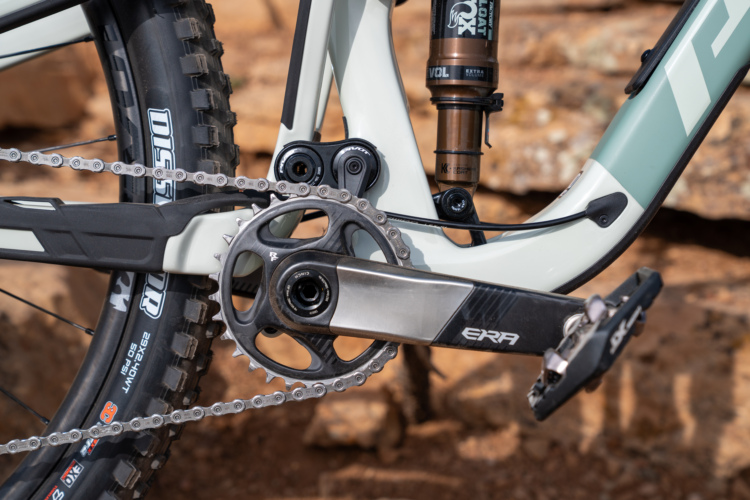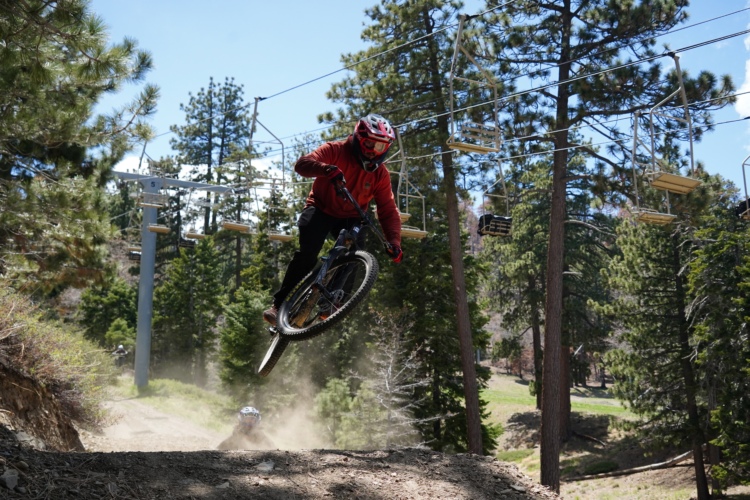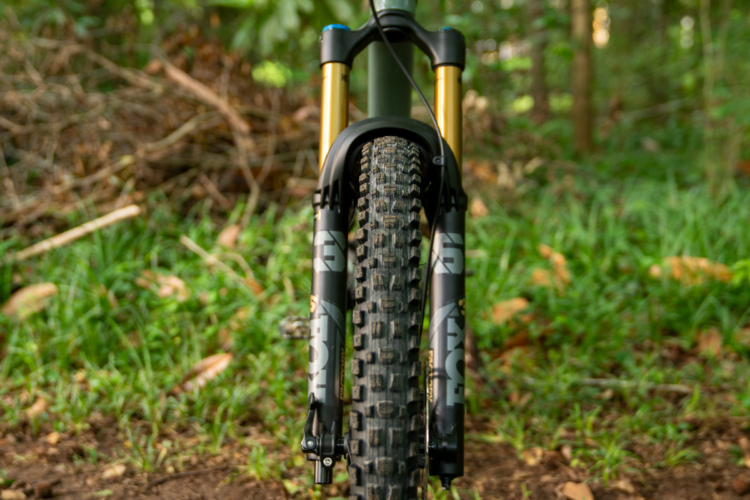
My wife and I bought our first house together a month before the pandemic and the subsequent housing boom. “We’ve never made a luckier financial decision,” I tell people when they ask about our house.
We looked at houses along the Denver metro area for a few months before we made an offer. All of them were along the west side, closer to the trail networks we wanted to spend time at. I’d lived far across town when I started mountain biking and knew the pain of swimming with the crowded stream to make post-work rides in rush hour traffic. I wanted the ease of being on-trail as quickly as possible, but it came with a cost. The areas closest to the mountains were filled with people of the same mindset and building opportunities are constrained–due to the mountains and all.
We were fortunate to close on the house at an ideal time, thanks in large part to a VA home loan. It wasn’t a dream house for either of us, but a first house doesn’t need to be a big house, we told ourselves at the time. Give it a few years, and we’ll find a better place.
Little did any of us know that the housing market would explode in just a few months, but years later, we’re seeing the ramifications. It’s incredibly competitive to buy a house almost anywhere, even if things have cooled off a bit. Of course, the markets get less competitive if you’re willing to go somewhere else. Somewhere less crowded, somewhere with a cooler job market, somewhere…flatter.
A few months ago during the spring, when Colorado was still battling cold and snow, we visited some friends in North Texas. We’d owed them a visit for some time and Amarillo was only a seven hour drive from home; barely longer than a trip to Moab, which we’d been to several times, and there happened to some decent mountain biking nearby in Palo Duro Canyon.
We showed up on a Friday afternoon with our bikes strapped to the back of the truck, excited to see our friends and ride in a new area. But first, the home tour.
Their house sits in the oldest neighborhood in the town. Cobblestone streets divide the hundred year old houses. Lexus’s and King Ranch F-150s sit in long driveways with detached garages. Old trees blossomed over brick and stone houses keeping them cool under the Texas sun.
We walked through their home office and foyer and listened to the hardwood groan underneath our feet as we went from one room to the next, twisting the antique door knobs, reviewing the bedrooms, living room, loft, and dining room. It wasn’t until the custom kitchen, with walnut cabinetry and modern, but retro-fitted appliances, where we started to feel pangs of envy.
“This house is beautiful,” we told them, knowing we’d never be able to afford something comparable in Colorado. Later in the weekend, we learned they purchased their house for about 25% less than what we paid for ours, despite the Texas home being three times the size and at least five times as cool.
“See, we can have our dream house,” I said. “Just maybe not in our dream location.”
On the drive home, we thought about what our place is worth to us. Is sacrificing the amount of recreation possibilities–hiking, mountain biking, camping, and the vast amount of wild public lands close by–worth what we’d gain in a house? Neither of us needed to speak to answer the question. We knew where we wanted to spend most of our time and it wasn’t within a set of walls. And countless other people are making this choice too, whether it’s in an even costlier locale or sacrificing a house altogether to travel in a van.
While we had a great time mountain biking Palo Duro Canyon, it was one of the few opportunities to mountain bike or hike for hundreds of miles. There are a lot of great things about Texas, but access to public lands isn’t one of them.
Finding a good place to settle down is never as easy as asking “where do we want to live?” either. The answer is tied up in family and work obligations, and financial means and it changes for people at different stages in life.
But occasionally it gets clearer when you identify what’s most important to you. The other week as I sat my yoga mat one Monday evening with a handful of others, the instructor casually asked, “Who went into the mountains this weekend?” A few of us raised our hands, myself included. “It’s one of the few reasons I convince myself to stay in this expensive state,” he said.
Yep, I thought to myself. Our house may not be that big, but it’s all we need, and the backyard is incredible.





















12 Comments
Jul 18, 2023
Jul 17, 2023
Jul 18, 2023
Jul 24, 2023
Jul 18, 2023
But then there are places like Squamish (which used to be pretty affordable) and there are no nearby alternatives if you want to ride Squamish/ whistler. If you are willing to sacrifice trail quality you could live in Chilliwack which does have an impressive trail system, but it isn't Squamish level nice and is an insane drive if you want to get anywhere.
Want a good bang for buck in BC with good trails I'd say Duncan is the best bet. Two great mountains and housing is still "affordable" (by BC measures). Nanaimo used to be a good deal, but the pandemic lead to a bunch of Vancouver expats driving up prices. Prince George is a bit of a secret gem for outdoorsy people. A great local mtb scene, probably the cheapest housing for a city with actual amenities. Anywhere cheaper you're going to make some major sacrifices on what's available locally (and even then you are making some concessions being in a city of 80k).
Jul 20, 2023
Aug 14, 2023
Aug 2, 2023
Jul 30, 2023
The Seattle area too has an amazing amount of great mountain biking trails, along with a fabulous mtb community.
Jul 17, 2023
Jul 18, 2023
Jul 18, 2023